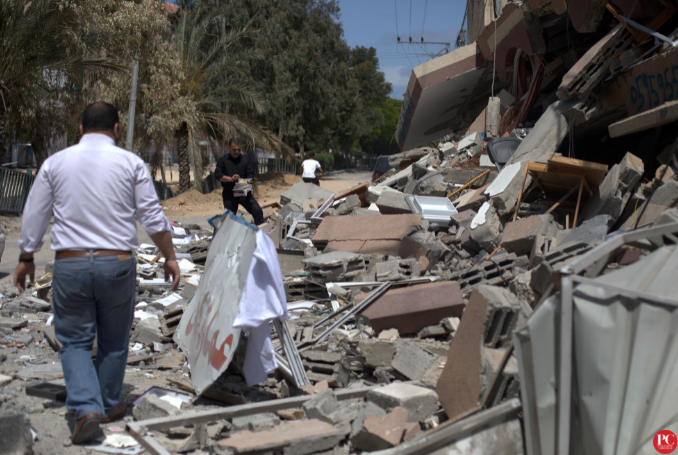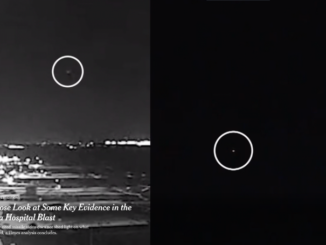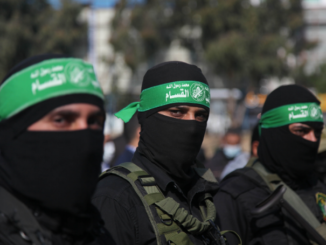
Each morning I pick up the paper from my porch. On the front page is always something distressing about Ukraine. But nothing about Palestine.
I’m not going to waste anytime here talking about the need to condemn Russia. That’s obvious. Countless articles are already out there on the necessity of that, as well as being critical of the media’s double standard of covering atrocities inflicted by Russia but not Israel. You can easily find them online if by chance—stress “by chance”—haven’t seen them.
I want to focus on what the lack of Palestinian coverage is doing. It is further undermining our confidence that the world cares about Palestine as much as it does Ukraine. This is reinforced, at least for me, by the many flags I see on cars while I drive throughout Toronto. It’s like Ukraine has won the World Cup, the flags reflecting a widespread public enthusiasm you don’t see for Palestinian justice.
Perhaps that would be different if the media (I am referring to Western media unless otherwise specified) made it “ok” to support Palestine instead of routinely framing or reducing it to the bane of Israel. I don’t think people realize how terrorized Palestinians themselves are by Israel—daily being harassed, killed, abused, dispossessed by it. We only hear about Palestine it seems when it is under aerial siege, such as last year in May.
Even then however the media presents a picture of Israel “defending itself” against Hamas or some other “enemy” of freedom and democracy. In contrast to its stance on Ukraine, the media never portrays Palestine as engaged in legitimate resistance against an oppressive force. No, the Palestinian is always a criminal; Israel, the perpetual victim that can do and does no wrong.
Underlying this is the troubling assumption that Israel has a right to the geography and occupies, be it to the detriment of the innocent Palestinian population. Capturing this, Michael Prior—in “The Right to Expel: The Bible and Ethnic Cleansing”—writes:
“What makes the case of Israel-Palestine unique is the claim that the consequential expulsion of the indigenous non-Jewish population belongs within the domain of the ‘rights’ of those perpetrating the expulsion, rather than being merely the fruit of force. The designation ‘right’ implies the support of a moral framework bestowing ‘legitimacy’, while conquest is conquest, the product of military might, which, in the eyes of the victims at least last, lacks legitimacy.”
Likewise, the media obscures just how often Israel employs the illegitimate use of force. Instead, they give audiences the false impression that there is occasional flaring of tensions between Israel and Palestine—as if the former is not proactive in ethnically cleansing the latter, let alone engaged in any form of violence at all.
Still, others who object to me making noise about Palestine tell me Palestine is not getting as much coverage as Ukraine because the conflict between Israel and Palestine is “old news.” The implication: what’s happening between the two is “normal”, a lost cause, that I should turn my attention to what matters now. Those who think this way may be rightfully sympathetic to Ukraine but there are undoubtedly ignorant too. And that ignorance will be used against them by media to continually divert their attention from Palestine and to any “big story”, however important on its own merits.
We cannot rely on the media to tell the whole truth about Palestine, much less hope it will give it the same amount of coverage as Ukraine. Rather, drawing from the present as a teachable moment, we must strategize ways of amplifying what is happening in Palestine. That can surely and is being done by alternative media, including the one you’re now reading. Other ways include demonstrations, petitions, pressuring political representatives to take reports like Amnesty International’s recent one on Israeli apartheid seriously and, of course, continue our efforts through BDS—targeting key political and economic institutions that allow Israel to commit crimes against humanity, with relative impunity.
In the process, our morale is boosted, overcoming the loss of confidence described and maintaining the spiritedness required to fight oppression in any form. Apart from indignation, the sadness of seeing Palestine suffer afflicts all in its struggle for justice. Yet, the more we turn outward and act collectively, the closer we move towards achieving that.
How the media covers that is secondary. Essential is that we do not lose faith in the struggle or one another.

– Paul Salvatori is a Toronto-based journalist, community worker and artist. Much of his work on Palestine involves public education, such as through his recently created interview series, “Palestine in Perspective” (The Dark Room Podcast), where he speaks with writers, scholars and activists. He contributed this article to The Palestine Chronicle.








